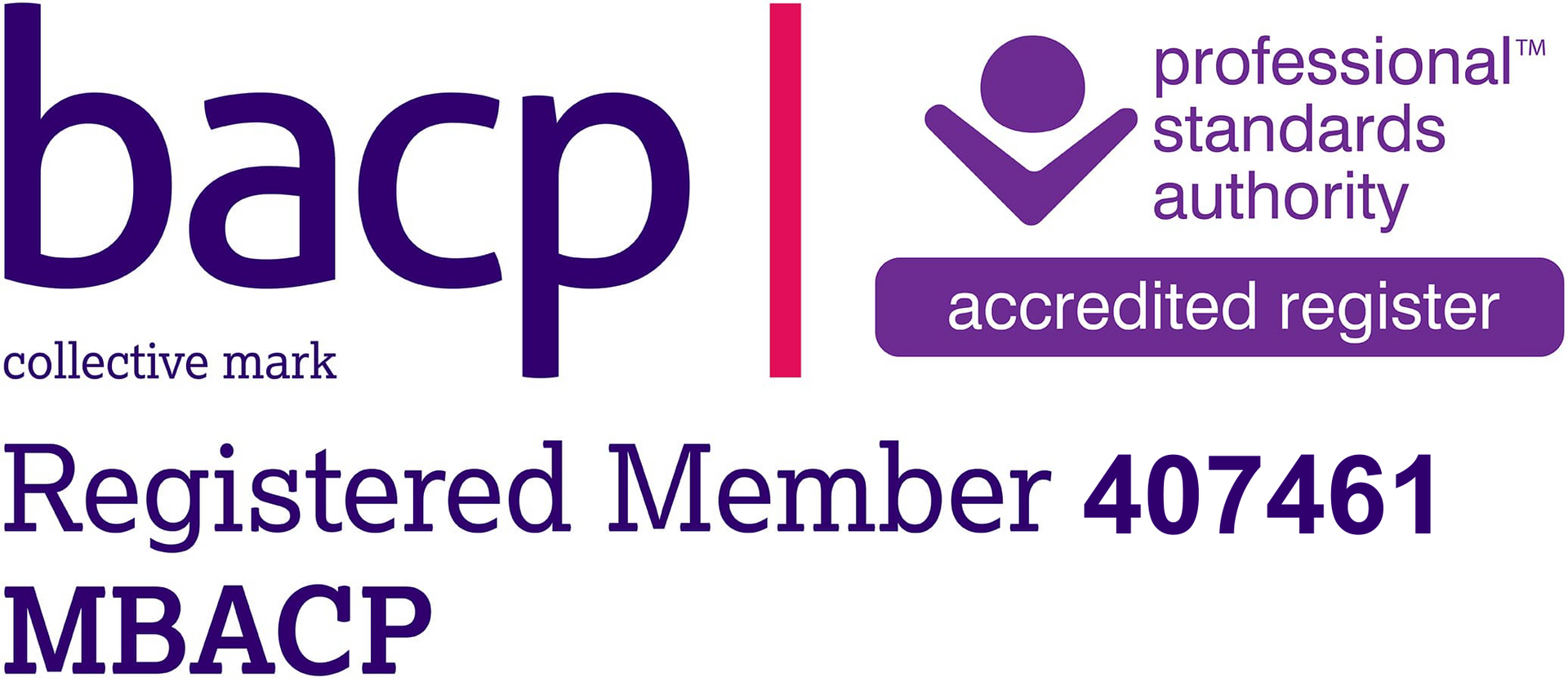Searching for a Therapist: A Comedy of Errors
Catherine Montague • February 3, 2025
You’ve decided to get a therapist. Congratulations! That means you’ve officially accepted that handling all of life’s problems alone isn’t totally working. Great!
But now comes the tricky part—actually finding a therapist. And let me tell you, this process is even difficult for us therapists (I know, it blows your mind that therapists have therapy). You want to find someone who you can share your deepest darkest thoughts with, that really gets you, but let’s face it even after a lifetime it is hard to find non judgemental relationships like that.
Step 1: Realising You Have No Idea Where to Start
We all assume that searching for a therapist will be easy. I’ll just Google “therapists near me” and pick one! And then—BAM. You’re hit with seven million results featuring words like “CBT,” “integrative approach,” and “psychodynamic therapy,” and suddenly, you feel like you need a therapist just to help you pick a therapist.
Step 2: The Great Directory Hunt
So you venture onto professional therapy directories, where you’re greeted with a parade of therapists’ headshots, all doing the classic “soft smile while leaning slightly forward” pose. You click on a few profiles and realise that every bio sounds something like:
"I offer a client-centered, holistic, trauma-informed approach that integrates multiple therapeutic modalities to meet your individual needs in a compassionate and non-judgmental space."
Which is great… but also tells you absolutely nothing about whether this person will vibe with your awkward jokes or understand why you still think about that embarrassing thing you did in 2009.
Step 3: Budgeting, or “How Much Do My Feelings Cost?”
Now, let’s talk money. Because unless therapy is covered by insurance (or you’ve struck), the reality is that mental health help comes with a price tag. You scroll through therapist profiles, feeling hopeful, until you see £90 per session.
Hmm. That’s… a lot of money. You start calculating: “That’s 6 bottles of wine, even in Waitrose, a new pair of trainers or a productive spree on Vinted”.
But then you remind yourself: mental health is an investment, and also, therapy is probably cheaper than moving to a remote cabin to avoid all human interaction forever.
Step 4: The Email of Doom
So, you’ve found a therapist who seems promising, and now it’s time to reach out. You want to sound casual yet professional, friendly but not desperate. Your email draft goes something like this:
"Dear [Therapist's Name],
I’m interested in therapy. I have some issues (but like, normal ones, not scary ones). Are you taking new clients? Also, how does therapy even work? Do I just start crying immediately or is there a warm-up period? Anyway, let me know!
Sincerely, Anxious but Enthusiastic"
After rewriting it 15 times to sound ‘normal’, you finally hit send—only to stare at your inbox for the next three hours, wondering if they think you’re weird.
Step 5: The First Session Jitters
Eventually, you get a response! The therapist has availability, and now it’s time for the first session. This is the therapy equivalent of a blind date, except instead of ordering drinks and flirting, you’re spilling your deepest traumas to a stranger in a cardigan (I love a cardigan).
The session begins. You don’t know where to start. Do you dive into childhood? Rant about work? Cry about your houseplants dying? Your therapist sits patiently, waiting for you to begin. Luckily, your therapist will guide you through the process, and soon, you will feel safe enough to explore your feelings and concentrate on you rather than all the noise surrounding you.
Step 6: Realising Therapy is Actually Pretty Great
At first, therapy feels weird—like talking to a very expensive friend who won’t interrupt you to tell you their own problems. But then, something shifts. You start having breakthroughs. You learn coping mechanisms. You realise that not everything in life is your fault . And suddenly, you get it. Therapy isn’t just about venting; it’s about growing, healing, and figuring out why you can’t stop saying “sorry” for things that aren’t your fault.
Final Thoughts: Is It Worth It?
Absolutely. Even if the search was chaotic, even if the first session was awkward, even if therapy forces you to confront uncomfortable truths—it’s worth it. Because, at the end of the day, taking care of your mental health is just as important as taking care of your physical health.
Trust me, I’m a therapist ;-)

When we think of counselling, we often imagine a quiet room, a serious tone, and tissues within reach. Yet, amid the emotional depth of therapy, humour can play a profound and transformative role. Far from being frivolous, laughter can open pathways to connection, insight, and healing. As the American psychologist Carl Rogers once said, “What is most personal is most universal.” And sometimes, what’s most personal is also what makes us laugh. The Psychology Behind Humour Sigmund Freud (1928) was one of the first to explore humour as a psychological mechanism. In "Jokes and Their Relation to the Unconscious," Freud suggested that humour serves as a “release valve,” allowing people to express repressed thoughts in a socially acceptable way. From this perspective, humour can provide both emotional relief and insight into deeper, unconscious material. Later theorists such as Viktor Frankl (1963), the Holocaust survivor and psychiatrist, also emphasised humour’s survival value. In "Man’s Search for Meaning," Frankl observed that even in the darkest circumstances, humour offered a way to rise above suffering — a small act of defiance against despair. The Therapeutic Benefits of Humour Research and clinical experience suggest that humour in counselling can: Build rapport and trust: A shared laugh humanises the therapist and strengthens the therapeutic alliance. As Carl Rogers (1957) highlighted, genuineness and warmth are key to effective therapy. A moment of laughter can embody both. Reduce anxiety and defensiveness: Humour can gently disarm resistance, allowing clients to explore difficult issues more freely. Shift perspective: Lightness can help clients reframe their thoughts, see patterns, and develop resilience. Encourage emotional regulation: Studies have found that humour activates brain regions associated with reward and emotion regulation (Mobbs et al., 2003), helping clients manage stress. When Humour Helps — and When It Hurts The art of using humour in therapy lies in timing and sensitivity. As psychologist Albert Ellis (1962), founder of Rational Emotive Behaviour Therapy (REBT), demonstrated, humour can be a powerful cognitive tool. Ellis often used gentle sarcasm or exaggeration to help clients see the irrationality of their beliefs — what he called “shame-attacking exercises.” Yet, his approach was always underpinned by empathy and respect. As research by Franzini (2001) notes, humour is beneficial in therapy only when it is inclusive, compassionate, and contextually appropriate. Using Humour in Therapy Therapist may: Model self-acceptance: Use gentle self-deprecating humour to show that imperfection is normal. Invite playfulness: Encourage creativity and flexibility in thinking, particularly in cognitive-behavioural or narrative approaches. Observe boundaries: Use humour to connect, not to deflect from the client’s pain. Reflect after laughter: Pause and explore what the humour reveals — what truth lies behind the smile. A Balancing Act Humour in counselling isn’t about telling jokes. It’s about recognising moments of levity and humanity amid struggle. As psychiatrist Irvin Yalom (1989) observed in "Love’s Executioner," authentic connection often includes moments of laughter — even in grief, loss, and despair. Those moments remind clients (and therapists) that healing isn’t just about surviving; it’s about rediscovering joy and perspective. In the end, humour can be seen as a subtle act of resistance against suffering — a way of saying, “I can still find light here.” When used thoughtfully, laughter can be as therapeutic as any interpretation or intervention.

Every so often, a book comes along that makes counsellors everywhere nod vigorously, underline passages, and mutter “Ah, that explains so much.” Mark Wolynn’s It Didn’t Start With You is one of those books. Its premise is simple but profound: the anxiety, depression, or curious phobias we wrestle with may not have originated in our own life at all. Instead, they may be echoes of unresolved trauma from parents, grandparents, even that mysterious great-uncle no one talks about. Fascinating, right? Of course, it also means my therapy room has turned into a cross between a family reunion and a history class, complete with ghosts of ancestors who never RSVP’d. Family Baggage: The Original Carry-On We all know about family heirlooms, grandma’s teapot, dad’s vinyl collection, the creepy porcelain doll no one asked for. But in my office, the most common inheritance is emotional baggage. And unlike the doll, you can’t just “accidentally” leave it at the charity shop. Some families pass down recipes. Others pass down unresolved guilt, anxiety, or a deep suspicion of clowns. And my job? To help untangle whose circus and whose monkeys these actually are. When “Tell Me About Your Mother” Becomes “Tell Me About Her Mother… and Her Mother Too” Counselling after It Didn’t Start With You feels like hosting a séance. I ask about childhood, and suddenly we’re unpacking World War II, the Great Depression, and “that one time Great-Great-Grandpa mysteriously disappeared for six months.” Clients: “So it’s not my fault?” Me: “Correct. But now it’s your responsibility.” That’s the kicker. Yes, it didn’t start with you. But it’s standing in your living room right now, eating your snacks, messing with your relationships, and refusing to pay rent. We can’t evict it, but we can set some boundaries. The Humour in the Heavy Here’s the thing: intergenerational trauma is heavy, complicated, and sometimes heartbreaking. But humour? Humour is the WD-40 for the rusty bolts of family dysfunction. If you can laugh at Uncle Bob’s inexplicable rage at Tupperware lids, you can start to loosen the grip of the past. My Professional Advice (Delivered with a Wink) If you’re blaming yourself for everything, pause. It probably started with your ancestors. If you’re blaming your ancestors for everything… also pause. You’re still the one holding the porcelain doll. Remember: healing may not have started with you either, but it sure can. And it involves slightly fewer pigeons than Grandma had to deal with. So yes, it didn’t start with you. But if you’re in my counselling room, I promise you this: it can end with you. Preferably with less crying, more laughter, and fingers crossed, no porcelain dolls.

Let me just say it: I never planned to become a counsellor and have Multiple Sclerosis. That combo wasn’t on my vision board. But here I am, juggling client sessions and unpredictable flare-ups like a very tired, slightly dizzy circus act. And you know what? It works. Having MS has turned out to be one of the most unexpected assets in my therapy toolbox. Sure, I’d trade the brain fog and leg spasms for a few more spoons a day, but since that’s not on offer, I’ve decided to lean in and laugh when I can. I Came for the Neuroplasticity, Stayed for the Empathy Before MS, I thought I understood what it meant to “hold space” for someone. Now? I hold space, hold onto the wall, and sometimes hold back tears because I sat down too quickly and now my legs have opinions about it. But seriously, living with MS means I get it. Chronic pain, fatigue, invisible battles, the awkwardness of asking for help (again)? Been there. My clients don’t need to explain what “brain fog” is; I probably forgot their name already and asked them twice. Brain Fog: The Unexpected Superpower Here’s the thing, MS comes with memory issues. This means I forget your last session and approach each one like a fresh start. Tabula rasa, baby! (It's Okay, I am joking) But this also makes me very present. I’m not planning dinner or my grocery list during your session. Result? Pure, undistracted presence. Boom, mindfulness mastered. Realistic Self-Care: Because Bubble Baths Don't Cure Neurological Conditions You know that Pinterest version of self-care? Yeah, MS blew that out of the water. I now define self-care as cancelling plans without guilt, napping like it’s a sport, and bringing my oversized pillow to my therapy pod like it’s a deliberate part of the decor. Clients get to see what actual self-care looks like. Not the kind that’s wrapped in eucalyptus oil, but the kind that involves fierce boundary-setting and learning to say "no" with your eyes closed (because you're already halfway to sleep anyway). Boundaries? I Love Them. Mostly Because I’m Too Tired to Overcommit. Having MS means I’ve had to get really good at boundaries. Do I want to overextend myself to accommodate a client’s last-minute request? Of course. Can I? Only if they want to do therapy while I lie on the floor in compression socks and intermittently fall asleep. Turns out, teaching clients how to respect my boundaries helps them feel empowered to set their own. Win-win. Unless I accidentally nap through the win. Still counts. Accessibility = Creativity Sometimes I can’t do things the traditional way. Walking long distances? Nope. Standing for long periods? Try again. Leading a walking-and-talking therapy session? Only if we both enjoy the thrill of a spontaneous arm grab if I wobble off course. But the upside is: It's made me really creative. I offer flexible sessions, virtual options, and seating arrangements that look suspiciously like a nap den. My pod may resemble a cosy geriatric sauna, but clients love it—and I do too. Vulnerability Makes Therapy Better (Even When It’s My Own) Clients may find it awkward to know I have MS and it’s not part of my personality or something I generally lead with, but it’s not something I hide either. I show up honestly, vulnerably and authentically. This openness fosters a space where clients feel seen, heard, and accepted, especially those with their own chronic conditions or neurodivergent experiences. If your therapist is held together by caffeine, determination, and is also medicated, you start to realise maybe you don’t need to have it all together either. ________________________________________ In Conclusion, It’s Not a Bug, It’s a Feature Having MS hasn’t made counselling easier, but it has made it richer. I connect more deeply, listen more attentively, and model real-life coping in real-time. Plus, I’ve got a great excuse to have a fully stocked snack drawer in my office. (Low blood sugar, high empathy—same difference.) So, if you’re a client looking for someone who truly gets it, or a fellow counsellor wondering if your health challenges disqualify you from helping others, know this: You can be healing and hurting. You can be tired and wise. You can be forgetful and fully present. And yes, you can have MS and still be a damn good therapist. Even if you occasionally forget what day it is.

Yes, the time has come! I'm moving....about five steps away from my house! Whoohoo! A New Chapter: Moving Into the Garden Studio I like to think I have offered a safe and supportive therapeutic space inside my family home, but I am beginning a new and exciting chapter. I had a little vision in mind, I wanted to offer a warm environment, a small oasis of calm in busy Berkshire, and so I have transitioned my practice to a purpose-built therapy room nestled in my garden—a space created specifically for reflection and healing. Why the Move? For many of my clients, my home-based practice offered a warm, informal space that reflected my approach—calm, grounded, and deeply human. But as my practice grew and evolved, so too did the need for a dedicated, private environment that could honour both professional boundaries and my clients' comfort. Over time, it became clear that I needed a space that was just for the work—a quiet, contained setting separate from the rhythms of family life and my son screaming at whatever game he was playing on his PC. The answer was just a few steps away: a garden therapy room, designed with intention and sensitivity. A Purpose-Built Space for Therapeutic Work My new therapy room is a sanctuary in itself. Flooded with natural light, surrounded by greenery, and insulated for warmth and privacy, it offers a sense of calm from the moment clients arrive. Every detail—from the soft furnishings to the garden path that leads to the door—has been chosen to support stillness, safety, and connection. What Clients Can Expect The transition has been made with care to ensure continuity for existing clients and ease for those new to the practice. The location remains in Winnersh, with discreet access via the garden side gate. There’s still off-street parking, and appointment times remain flexible. Whether you’re visiting for the first time or returning after a break, you’ll find the same warm welcome—just with a different view. Looking Ahead The garden room marks more than just a change in setting, it demonstrates my commitment to my work and the people I support If you’re considering therapy or simply curious about the new space, I welcome enquiries. Click on over to my Contact page and get in touch.

Have you ever wondered why you respond the way you do in romantic or close relationships? You may struggle with trust, fear of abandonment, or the need for constant reassurance. These patterns often have deep roots, and they may be linked to your attachment style. In this blog, we explore how attachment theory influences our adult relationships and why seeking counselling for attachment issues can lead to healthier, more fulfilling connections. What Is Attachment Theory? Attachment theory, originally developed by psychologist John Bowlby, describes how the bonds we form with our primary caregivers shape our emotional development. These early interactions create internal templates—known as attachment styles—that affect how we relate to others throughout life. The Four Main Attachment Styles 1. Secure Attachment Developed from consistent and responsive caregiving Adults tend to have healthy boundaries, trust in relationships, and emotional regulation They feel comfortable with intimacy and independence 2. Anxious (Preoccupied) Attachment Stemming from inconsistent caregiving Adults may feel insecure, crave closeness, and fear abandonment They often seek constant reassurance and worry about their partner’s feelings 3. Avoidant (Dismissive) Attachment Originates from emotionally unavailable caregivers These adults value independence, suppress emotions, and may struggle with vulnerability Intimacy often feels threatening or overwhelming 4. Disorganised (Fearful-Avoidant) Attachment Often rooted in trauma or abuse Characterised by conflicting desires for closeness and fear of intimacy Adults may feel unsafe in relationships and struggle with emotional regulation How Attachment Styles Affect Adult Relationships Your attachment style can influence: Communication patterns (e.g., withdrawal vs. clinginess) Conflict resolution (e.g., avoidance vs. over-involvement) Trust and intimacy Boundaries and emotional availability For example, an anxious partner might seek frequent validation, while an avoidant partner may withdraw under emotional pressure, creating a painful, repetitive dynamic often described in relationship counselling sessions. Can Attachment Styles Change? Yes. Although your early experiences shape your tendencies, attachment styles are not fixed. Through self-awareness, healthy relationships, and therapeutic support, it’s possible to develop more secure ways of connecting. This is where counselling for attachment issues can make a real difference. The Role of Therapy in Healing Attachment Wounds Working with a qualified therapist allows you to: Explore your attachment history Understand your triggers and patterns Develop healthier coping mechanisms Learn secure relationship skills Whether you're in a relationship or single, therapy for attachment issues helps build the emotional tools to create safe, supportive bonds—with others and yourself. Seeking Help: You’re Not Alone If you recognise yourself in these patterns, know that help is available. I offer compassionate, non-judgmental support . Together, we can create a path toward healing, growth, and emotional resilience. Final Thoughts Our early relationships shape us, but they don’t have to define us. With the right support, you can break free from limiting patterns and form deeper, more meaningful connections. Whether you're exploring attachment styles in or looking to improve your emotional wellbeing, you're taking an important step toward a healthier future.

Let’s be honest: grief sucks. As a counselor, I’ve had a front-row seat to the absolute pain that is experienced, the unpredictability, and, yes, even the dark humor of grief. It’s like a surprise party you didn’t want, hosted by your emotions, and attended by all the weirdest parts of your psyche. You can experience loss in many forms, relationships, pets, jobs and even possessions. There is no set time frame, it can be complicated and your experience will be individual, but in the worst of times, something that can help is the connection with others - that's where counselling can help. A counsellor is there for all the stages and in no particular order. Stage One: Denial (Also Known as “This Is Fine”) Denial is the psychological equivalent of spilling coffee on yourself and pretending it’s a fashion statement. Your brain simply refuses to process the reality of your loss, so instead, it defaults to things like over-scheduling, baking an excessive amount of banana bread, or deciding now is the perfect time to start training for a marathon (even though you haven’t run since the last time you were chased). Stage Two: Anger (A.K.A. Everyone and Everything is Annoying) Welcome to the rage stage! This is where you yell at inanimate objects, show your frustration at unsuspecting customer service reps, and completely understand why rage rooms are booming. Anger is just your brain’s way of saying, "I don’t like this one bit!" and then flipping an emotional table. Stage Three: Bargaining (The Art of Negotiating with the Universe) This is the stage where you make totally rational deals, like, "If I meditate for 10 minutes every day, the universe will undo my loss, right?" or "Maybe if I just apologise to that ex from 2014, things will start looking up." Spoiler alert: life doesn’t do refunds, but go ahead and bargain—it’s part of the process. Stage Four: Depression (A.K.A. The Blanket Burrito Phase) Suddenly, your bed is the only place that understands you. You’ve been wearing the same sweatpants for three days, and your meals consist solely of snacks that require zero preparation. This is the part where the weight of the loss truly settles in, and as much as it sucks, it’s also a necessary step. Just remember, Netflix marathons count as self-care. Stage Five: Acceptance (Not to Be Confused with "Everything’s Fine Now") Ah, acceptance—the stage that people assume means you’re "better." Acceptance doesn’t mean you love the loss or that it no longer hurts. It just means you’ve stopped fighting reality and started integrating it into your life. It’s the emotional equivalent of making peace with the fact that low-rise jeans are coming back into fashion—unpleasant, but inevitable. So, What Now? The truth is, grief is weird, messy, and deeply personal. Sometimes, it sneaks up on you in the form of an unexpected sob-fest in the frozen food aisle. Other times, it manifests as a maniacal laugh when you remember your loved one would have totally mocked your current life choices. And that’s okay. The key is to let yourself feel it, even when it’s awkward, even when it’s annoying, and especially when you think you shouldn’t.

Suicide is one of the leading causes of death among men in the UK, yet it remains an issue shrouded in silence and stigma. As a counsellor, I have seen the emotional burdens that many men carry—often alone. It’s time we address this crisis head-on and create a society where men feel safe to speak openly about their struggles. The Reality of Male Suicide in the UK According to the Office for National Statistics (ONS), men account for around three-quarters of all suicides in the UK. The highest rates are among men aged 45-49, but the issue spans across all ages. The question we must ask is: why? Why Are Men at Higher Risk? Several factors contribute to the disproportionately high suicide rates among men, including: 1. Societal Expectations and Masculinity From a young age, many boys are taught to “man up,” suppress their emotions, and avoid vulnerability. This cultural conditioning leads to emotional isolation, making it difficult for men to seek help when they need it most. 2. Reluctance to Seek Help Men are statistically less likely than women to access mental health services. This reluctance often stems from the stigma surrounding mental health, a fear of being perceived as weak, or a belief that they should handle problems on their own. 3. Financial and Work Pressures Men often feel intense pressure to be providers, and financial instability can lead to feelings of failure and hopelessness. Job loss, debt, and workplace stress are significant risk factors for male suicide. 4. Relationship Breakdowns Divorce or separation can have a profound impact on men’s mental health. Studies show that men who experience relationship breakdowns are at a heightened risk of suicide, partly due to the loss of emotional support and family connections. 5. Substance Abuse Many men turn to alcohol or drugs as a way to cope with emotional pain. Unfortunately, substance abuse can intensify feelings of depression and increase impulsivity, raising the risk of suicide. Why We Must Talk About Male Suicide Silence kills. The more we talk about male suicide, the more we break down the stigma surrounding men’s mental health. Open conversations can encourage men to seek support, challenge harmful societal norms, and ultimately save lives. How Can We Help? 1. Encouraging Open Conversations We must create spaces where men feel safe to express their emotions without fear of judgment. Whether it’s in the workplace, among friends, or within families, normalising discussions about mental health can make a significant difference. 2. Promoting Access to Mental Health Support Counselling and therapy should be made more accessible and appealing to men. Campaigns that highlight male experiences with therapy can help break down barriers to seeking help. 3. Challenging Traditional Notions of Masculinity It’s time to redefine strength. True strength lies in acknowledging emotions, asking for help, and supporting one another. We must teach boys and men that vulnerability is not a weakness but a vital part of being human. 4. Checking in on the Men in Our Lives Sometimes, a simple “How are you really feeling?” can make all the difference. Be there for the men in your life and encourage them to talk about their struggles. A Call to Action Male suicide is preventable, but we must be willing to confront the issue directly. By fostering open dialogue, promoting mental health support, and challenging harmful stereotypes, we can create a culture where men feel empowered to seek help. If you or someone you know is struggling, reach out. You are not alone, and help is available. For immediate support, you can contact Samaritans at 116 123

As a counsellor, I often hear about the small joys that help people unwind after a long day, and one guilty pleasure that frequently comes up is reality TV. From emotional reunions to dramatic showdowns, these shows captivate us in ways we can’t always explain. But is there something deeper behind our obsession? Let’s explore the psychology behind why we can’t look away. 1. The Drama as Emotional Release Our daily lives don’t always come with explosive arguments, unexpected plot twists, or grand romantic gestures. Reality TV provides a safe way to experience and process heightened emotions without real-life consequences. Watching these intense moments allows us to engage with strong feelings—from anger to joy—without being personally involved, giving us a much-needed emotional outlet. 2. Social Comparison and Self-Reflection Psychologists often talk about social comparison theory, where we measure ourselves against others to understand our own strengths and weaknesses. Watching reality TV, we might see contestants making questionable choices and think, "At least I wouldn’t do that!" But sometimes, we might also identify with their struggles, giving us a chance to reflect on our own challenges and personal growth. 3. The Illusion of Connection and Belonging Reality TV shows are designed to make us feel like we know the contestants personally. The use of direct-to-camera confessions creates a sense of intimacy, making us feel connected to their stories. As human beings, we crave belonging, and these shows create an illusion of community—whether we’re rooting for an underdog or passionately discussing last night’s episode with friends. 4. Escapism and Stress Relief Life can be overwhelming, and sometimes, we just need a break. Reality TV provides a way to temporarily step out of our own worries and immerse ourselves in someone else’s (often exaggerated) world. Whether it’s a cooking competition or a dating show, this distraction can help relieve stress and offer a much-needed mental break. 5. The Psychology of Cliffhangers Producers know how to keep us hooked, often ending episodes on a cliffhanger. This plays into the Zeigarnik Effect, a psychological principle where our brains remember unfinished tasks more than completed ones. The result? We keep watching, eager for resolution—often leading to that familiar, "Just one more episode..." moment and the shameful “Are you still watching” (Thanks for that Netflix and Prime, as if we don’t have enough Judgy McJudgerson in our lives) 6. Finding Hope in the Storylines Despite the chaos, reality TV also provides moments of hope and transformation. Whether it’s an underdog winning a competition, someone overcoming adversity, or a couple finding love, these stories remind us that positive change is possible. As a counsellor, I see how powerful hope can be in personal growth, and even reality TV can play a small role in inspiring people to believe in new possibilities. Should We Feel Guilty About Watching? Absolutely not! Like anything in life, balance is key. If watching reality TV brings joy, relaxation, or even insight into human behavior, then it has value. The important thing is to be mindful of how it affects your well-being. If it’s enhancing your life rather than detracting from it, then enjoy it without guilt. As a counsellor, I believe in embracing the things that bring us joy—whether that’s mindfulness, therapy, or a binge-worthy reality show, now excuse me I have a “meeting” I must get to ;-)

Le t’s be honest—self-care has become the buzzword of the century. Every influencer, wellness guru, and random person on the internet (including me) is telling you to practice self-care. But what is self-care, really? Is it expensive bath salts? Is it screaming into a pillow? Is it eating an entire cake because “you deserve it”? The answer: yes—but also, no. Self-Care vs. Self-Sabotage A common misconception is that self-care means doing whatever makes you feel good in the moment. That’s how we end up calling a five-hour Netflix binge “mental health time” when, really, it’s just an excuse to avoid our responsibilities. True self-care isn’t just about indulging yourself—it’s about taking care of yourself in ways that future-you will appreciate. For example: ✅ Self-care – Going to bed at a reasonable hour. ❌ Self-sabotage – Staying up until 3 AM watching conspiracy videos about why pigeons are actually government spies. ✅ Self-care – Drinking water to stay hydrated. ❌ Self-sabotage – Drinking six iced coffees and wondering why your anxiety is tap-dancing on your nervous system. Types of Self-Care (Yes, There’s More Than One!) 1. Physical Self-Care (Your Body Will Thank You) Exercise, eating vegetables, stretching—basically, all the things we know we should do but avoid like that email from our boss. The key here isn’t punishing yourself at the gym but moving your body in ways that feel good. Dancing in your kitchen counts. So does walking to the fridge for snacks (kind of). 2. Mental Self-Care (Giving Your Brain a Break) Your brain is like an internet browser with 57 tabs open at all times. Meditation, journaling, and setting boundaries help you close a few of those tabs before your mental WiFi crashes. 3. Emotional Self-Care (Because Feelings Are a Thing, Apparently) Ever cried in the car for no reason? No? Just me? Emotional self-care means allowing yourself to feel things instead of bottling them up like a volcano of stress. Therapy, talking to friends, or even just screaming into the void can be helpful. 4. Social Self-Care (But Make It Selective) Not all social interactions are equal. Saying yes to everything? Exhausting. Saying yes only to people who energise you? That’s self-care. Cutting toxic people out of your life is the emotional equivalent of deleting 100GB of junk files from your computer. 5. Spiritual Self-Care (No, You Don’t Have to Become a Monk) Whether it’s prayer, meditation, or just staring at the sky and contemplating the meaning of life, taking time to connect with something bigger than yourself can be incredibly grounding. The Bottom Line: Self-Care is a Necessity, Not a Luxury Self-care isn’t selfish. It’s not just about face masks and scented candles (although those are great too). It’s about doing what makes you a happier, healthier, less-grouchy human. And if that means taking a nap instead of answering emails? So be it. Now go drink some water, take a deep breath, and remember: self-care isn’t a trend—it’s survival.




